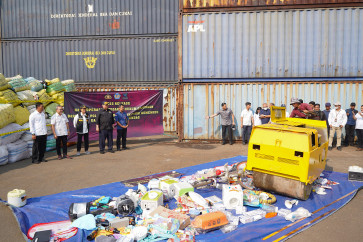ADB warns Pacific of climate change-related economic losses
The economic loss suffered by the Pacific region due to climate change could range from 2
Change Size

The economic loss suffered by the Pacific region due to climate change could range from 2.9 percent to as high as 12.7 percent of annual gross domestic product (GDP) by 2100, according to a new study from the Asian Development Bank (ADB).
The study, titled Economics of Climate Change in the Pacific, includes the modeling of the future climate over the Pacific region; assessments of the potential impacts on agriculture, fisheries, tourism, coral reefs and human health; and predictions of the potential economic impact of climate change for specific sectors and economies under various emissions scenarios.
'It is critical that countries contributing to the problem of climate change step up to assist Pacific friends and neighbors in the fight to protect their countries against natural disasters, crop losses and forced migration,' Xianbin Yao, director general of ADB's Pacific department, said in an official release.
'Our findings show that if not adequately addressed, climate change could overturn the region's development achievements.'
According to the report, the most significant economic losses would be felt in Papua New Guinea (PNG), where climate change impacts could trigger a loss of up to 15.2 percent of its GDP by 2100. Timor-Leste's GDP is predicted to drop by up to 10 percent, followed by Vanuatu at 6.2 percent, Solomon Islands at 4.7 percent, Fiji at 4.0 percent and Samoa at 3.8 percent.
Under a medium emissions scenario, Fiji, PNG, Samoa, Solomon Islands, Timor-Leste and Vanuatu could see temperatures rise by 2-3°C by 2070, which could lead to significant decreases in rain-fed agriculture, reduced fish catches, widespread coral bleaching, and falling tourism numbers.
The report notes that the negative effect on agriculture contributes to most of the total economic cost of climate change in the Pacific and estimates that the Pacific region could require US$447 million until 2050, and up to $775 million or 2.5 percent of GDP per year to prepare for the worst scenario. The cost of adaptation would be significantly less under lower emissions scenarios.
The report recommends policy leaders take urgent action to mainstream climate change mitigation into development planning and develop forward-looking adaptation strategies. The report also recommends climate-proofing infrastructure to improve long-term sustainability and boosting the capacity of Pacific countries to deal with climate change on their own. Pacific countries will also need dramatically improved access to global and regional climate change funds.









